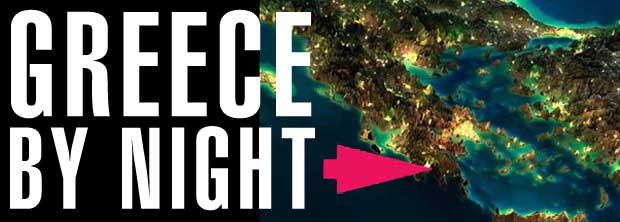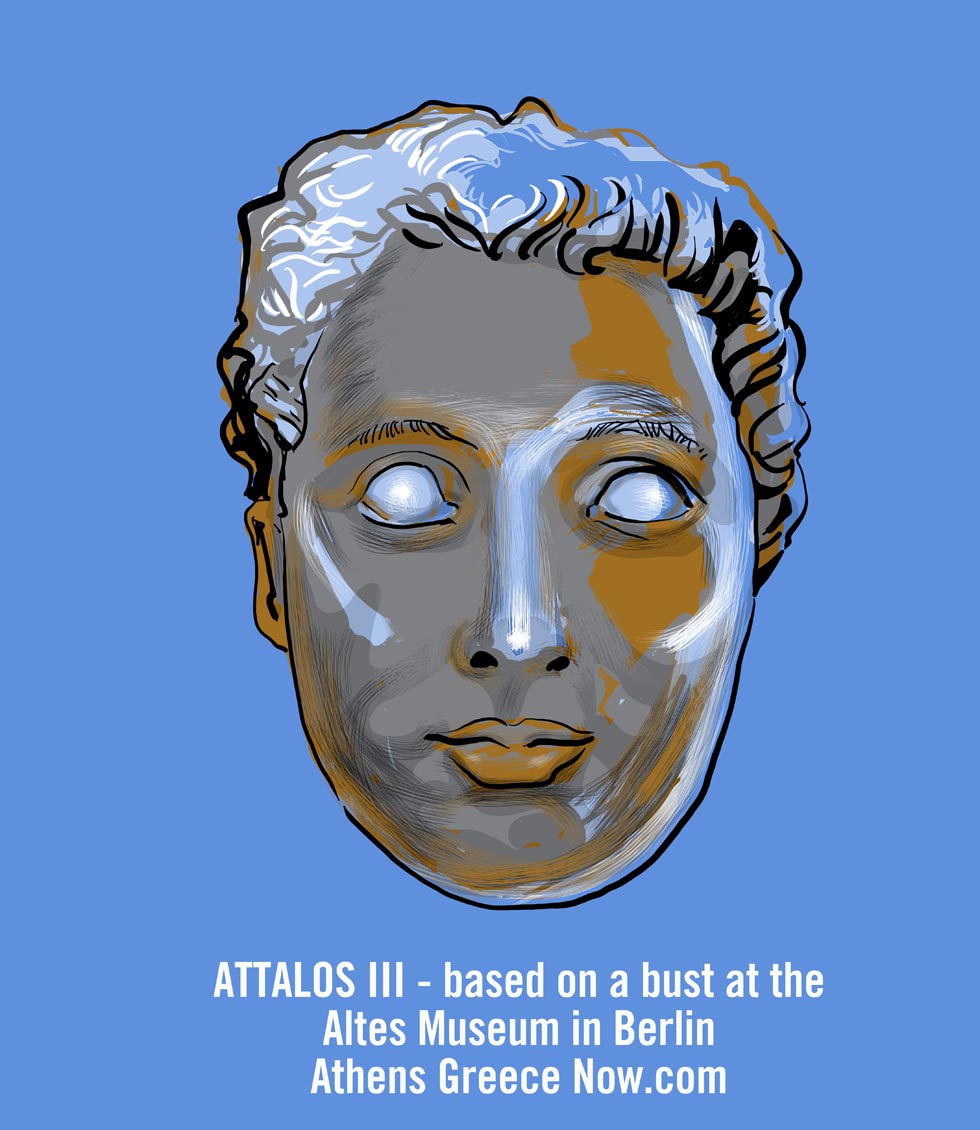About Attalos III
Attalus Philometor Euergetes
Attalos III ruled Pergamus (also called Pergamum) from 138 BC to 133 BC, an area that stretched from Greece through Anatolia.
He was the son of Eumenes II Soter and the successor to the throne behind his uncle Attalos II Philadelphos who, according to Plutarch and other ancient historians, trained Attalos III to be king and crowned him, even though Attalos II had children of his own which he bypassed in order that the crown would continue from Eumenes II Soter to his nephew Attalos III instead, as Attalos II had only ruled as regent until Attalos II was old enough to rule the kingdom.
He is also known as Attalus III, "Attolos G" and "Philometor Euergetes," which is an honorific title meaning "he loves his mother" referring to his step-mother Queen Stratonice. She was the wife of both Attalus II and King Eumenes II. She was a princess of Cappadoci, and was from Greek Macadonian and Persian ancestry. Both kingdoms of Cappadoci and Pergamus were closely allied with Rome. The legend is that after Queen Stratonice death in 135 BC, Attalos III believed she has been murdered and he used poison to consequently kill the perpetrators. A pair of ancient statues were made honoring Stratonice, one in Pergamum sponsored by Attalos III and another on the island of Delos apparently sponsored by her family relations.
On his death Attalos III left his wealth to the Roman state as he believed they would confiscate it anyway, his hope being that this would protect Pergamon autonomy. This move was successful for a time, but a later revolt against Rome resulted in Pergamon being split up between Rome, Pontus, and Cappadocia.
Greek History Topics
Attalos II Philometor Euergetes
The Classical Period fo Greek History
Constantine II – The Last King of Greece
Parthenon (photo 1920)
Greece 1990s economic survival
The Panathenaic Stadium in Athens
Lycurgus of Athens famed financial leader and public works administrator for Athens in 4th century BC
Description of the original Hagia Sophia of Justinian I from the book History of the Byzantine Empire by George Ostrogorsky
Related: Constantine II The Last King of Greece has died
References for this page:
Holiday Magazine Guide to Greece, 1971, page 42
Eyewitness Travel Guide Greece, 2004, page 90
Athens Encounter, Lonely Planet 2009, page 17
Fodor's Greece, 1976, page 133-134
Wings over Hellas, Oxford Univ., 1974, page 31
ADVERTISEMENT
Guide Book for the Peloponnese: with Athens, Delphi and Kythira – Paperback – Amazon – Bradt Travel Guides, 288 Pages, November 18, 2025
The Acropolis in Athens Greece
The Acropolis - Parthenon and More



Greece's Golden Visa program

